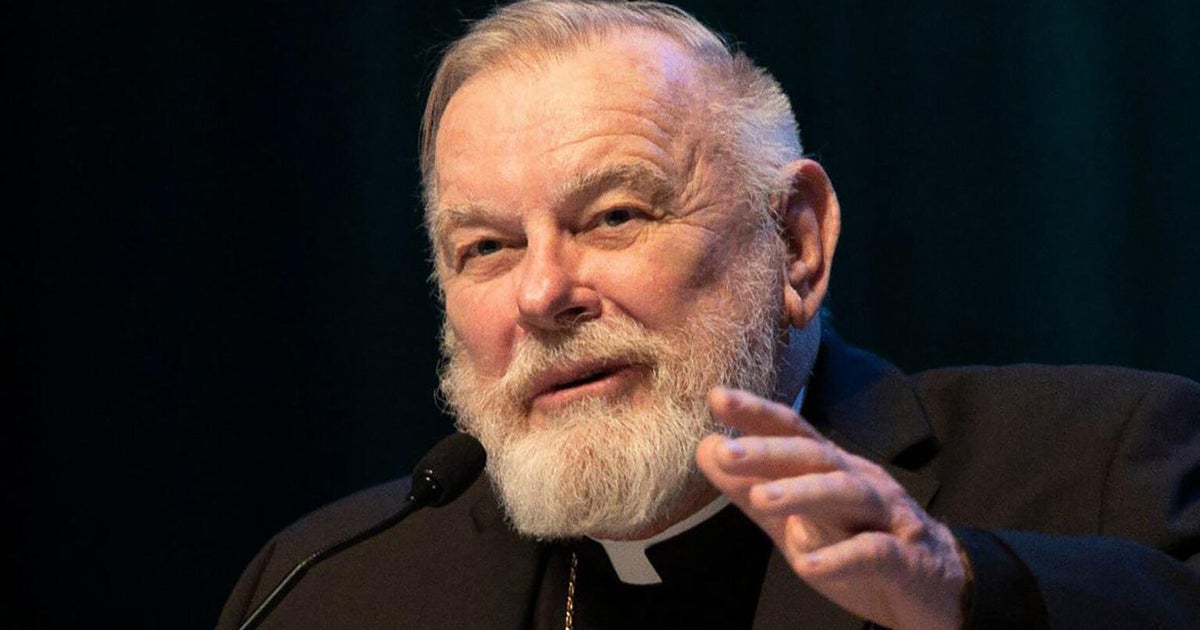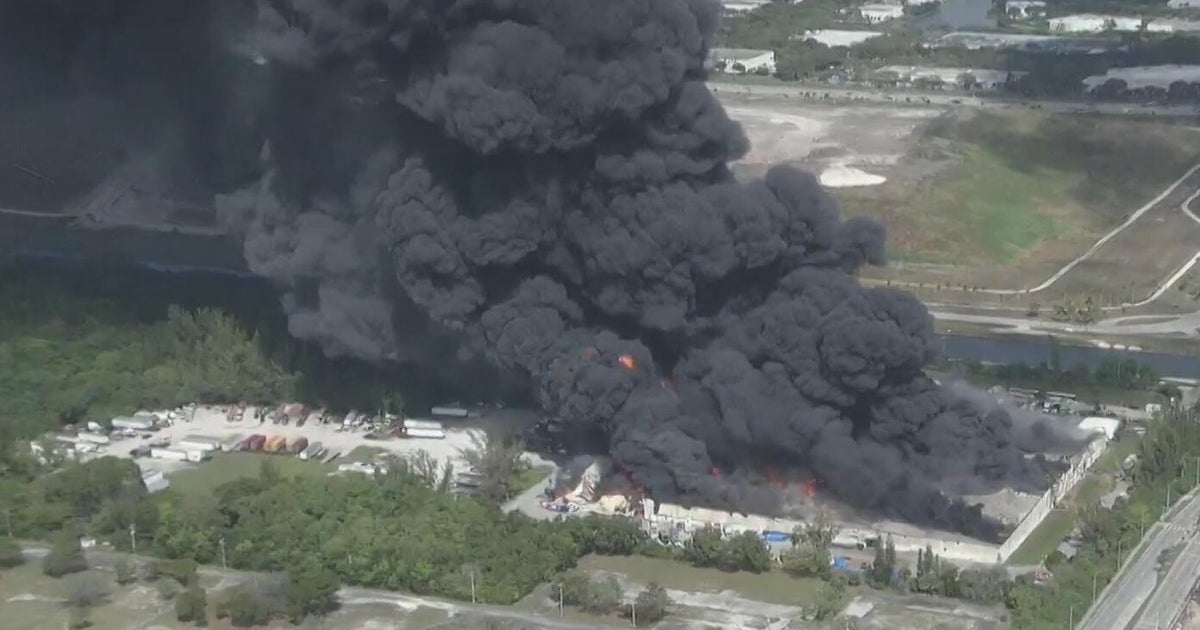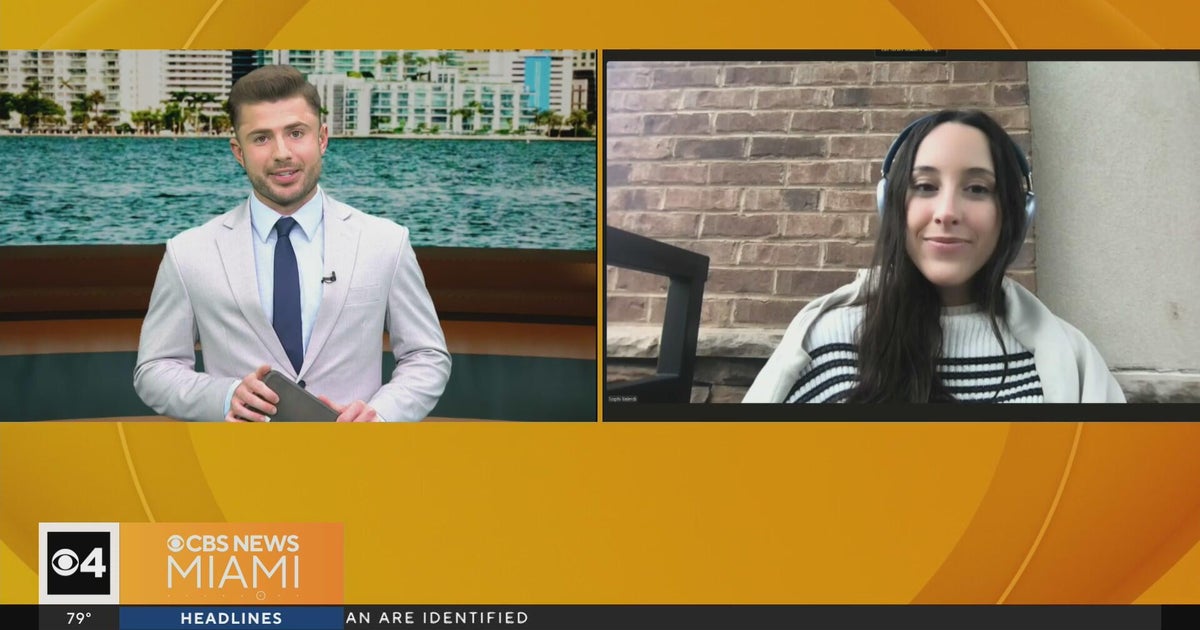The Archdiocese of Miami said Friday that Archbishop Thomas Wenski is not retiring, despite the submission of a letter of resignation to the pope as required by canon law upon turning 75 years old.
A spokesperson confirmed to CBS News Miami that while Wenski has formally submitted the letter, a procedural step all bishops must take upon reaching the age limit, he will continue to lead the Archdiocese for now.
Earlier this month, Wenski celebrated his 75th birthday with a Mass of Thanksgiving and a pizza party with employees at the Archdiocesan Pastoral Center in Miami Shores. During his homily, he mentioned he had sent his resignation letter as required by church law, sparking speculation about his retirement.
“When I leave office and who will replace me will depend on [the pope],” Wenski said during the celebration. “But to be sure, I will get to know of my willingness to continue to serve as your archbishop for as long as he wishes.”
After Mass, employees celebrated with pizza and ice cream at the archbishop’s request, according to Janey Millian, the payroll manager in the archdiocesan human resources office.
Sister Elizabeth Worley, chancellor for administration and chief operating officer of the Archdiocese, said Wenski remains in good health and is “very able and willing to serve.”
“I am sure the Holy Father will allow him to serve a little bit longer,” she said.
Wenski has led South Florida’s Catholic community since 2010 and is the fourth Archbishop of Miami. Before that, he served as bishop of Orlando and as an auxiliary bishop in Miami.
The archbishop’s life and career
Wenski was born on Oct. 18, 1950, in Lake Worth, Florida. His parents, Chester S. Wenski and Louise M. (nee Zawacka) Wenski, were Polish immigrants, and he has one younger sister, Mary Engle.
According to his biography on the Archdiocese of Miami’s website, Wenski first thought of becoming a priest as a third grader while attending the Sacred Heart School in Lake Worth and entered St. John Vianney Seminary in Miami at 13.
It was at St. John Vianney that Wenski learned Spanish from his classmates, and at St. Vincent de Paul Regional Seminary in Boynton Beach, where he also listened to Cuban radio and spent time in Hialeah and Little Havana.
Ordained in 1976 by the late Archbishop Coleman F. Caroll, Miami’s first bishop, Wenski thought he would be working with the Hispanic community his entire life. However, he arrived at the Corpus Christi Parish in Wynwood and found a group of 40 to 50 Haitians who gathered regularly for Mass and prayer.
“They filled that church with song,” he recalled.
Wenski’s conviction that every group needs to be ministered in their own language compelled him to back his words with action and he began taking a course in Creole, which immediately caught the attention of Archbishop Emeritus Edward A. McCarthy, sealing his fate. After spending a summer in Haiti learning Creole, Wenski spent the next 18 years working with Miami’s growing Haitian community, a role that made him the concurrent pastor of three missions — Miami, Fort Lauderdale, and Pompano Beach — all of which he founded, the Archdiocese said.
Wenski often traveled across the state to celebrate Mass with other Haitians, a commute that spurred him to earn a pilot’s license. His ministry also included frequent visits to the Krome Detention Center, where newly arrived refugees often languished for months.
“My task was to make the Church visible to the Haitians and to make the Haitians visible to the Church,” he said. “All of God’s children should feel at home in their Father’s house. The best way to make them feel at home is to speak their mother’s tongue.”
Wenski quickly became known as an outspoken advocate for Haitians not only within the church but in the community. As if his duties as a circuit-riding pastor were not enough, he also learned desktop publishing and singlehandedly put out the nation’s first Creole-language newspaper, Lavwa Katolik (The Catholic Voice).
In 1993, Wenski earned his master’s degree in sociology from Fordham University.
The archbishop said he traces his convictions on social justice to his upbringing as a child of Polish immigrants and the concept made famous by a Polish pope: solidarity.
“I come from very simple stock,” he said, joking that Lake Worth is a far cry from West Palm Beach, let alone Palm Beach. His father worked with his hands, “he had callouses and sunburn,” and he drank beer, not cocktails.
While the Catholic Church in the United States started out as a church of immigrants, more and more Catholics are now middle-class suburbanites, Wenski said.
“It was very easy for that newly middle-class Church not to see the newcomer who was poor,” he said. “Since the Gospel is for all men and women, we have to make it present to all.”
Despite loud objections from of the Cuban exile community, Wenski spearheaded a relief operation that delivered more than 150,000 pounds of food to Caritas Cuba for distribution to people left homeless by Hurricane Lili in 1996. According to the Archdiocese, Wenski’s work was the first time that Miami’s Cuban community had undertaken such a humanitarian relief effort for their compatriots.
Becoming auxiliary bishop of Miami the following year, and subsequently being named head of the U.S. Bishops’ Committee on Migration, Wenski was allowed to broaden his advocacy. In 2003, the committee and its Mexican counterpart published “Strangers No Longer: Together on the Journey of Hope,” the first joint pastoral statement urging for the better treatment of Mexican immigrants in the U.S.
Wenski also traveled to Korea and the Congo to study the plight of refugees, and has been heavily involved in PROCHE, the international Partnership for Church Reconstruction in Haiti, in response to the 2010 Port-au-Prince earthquake.
After being named coadjutor bishop of Orlando in 2003, and taking over as bishop in 2004, the Archdiocese said Miami’s “native son” returned to South Florida in 2010 as its fourth archbishop. Since then, Wenski quickly moved to reopen some parishes that had been closed due to the 2009 financial crisis and launched a second archdiocesan synod in 2012. It concluded in October 2013 with a Strategic Pastoral Plan, which began to be implemented in 2014.
Wenski continues to speak out strongly for immigrants as for the unborn, and urges Catholics to set “an example of holiness in a world full of outrage and divisiveness,” the Archdiocese said. As his episcopal motto, taken from St. Paul’s Letter to the Corinthians, states, Wenski has “become all things to all in order to save at least some.”
“That is what I’ve tried to do,” he said. “To save souls for Christ and hopefully in doing so, to save my own soul.”



